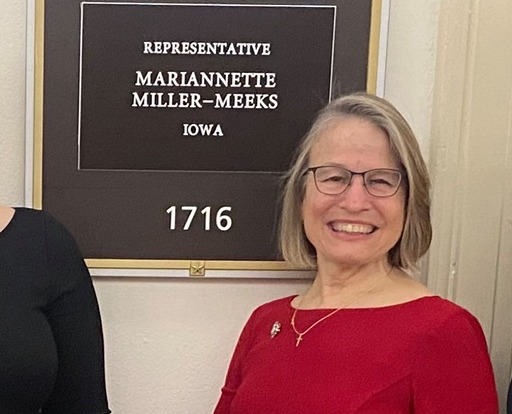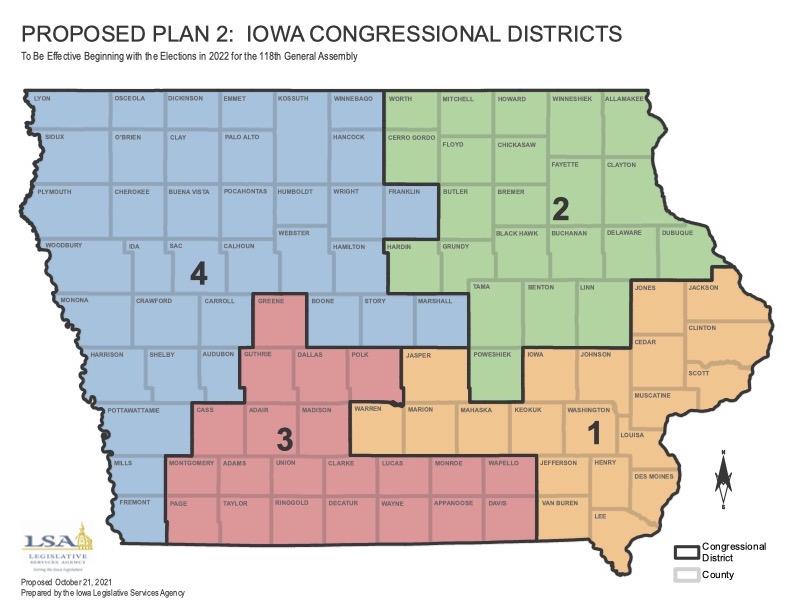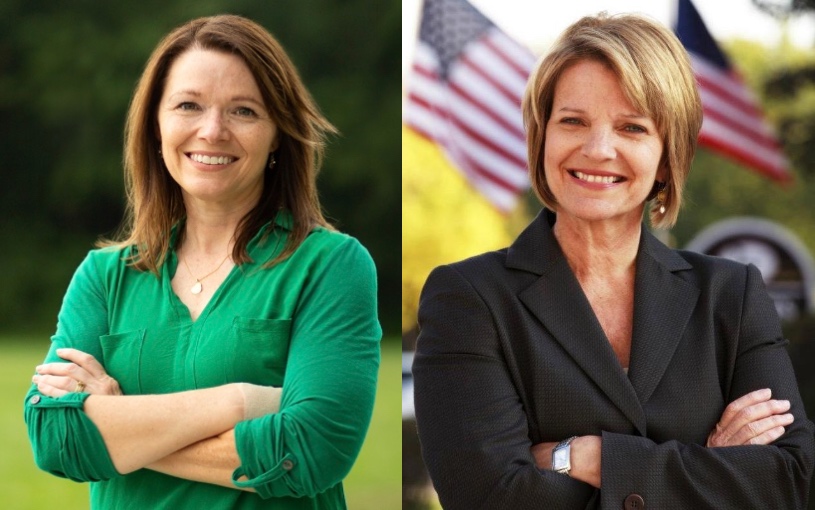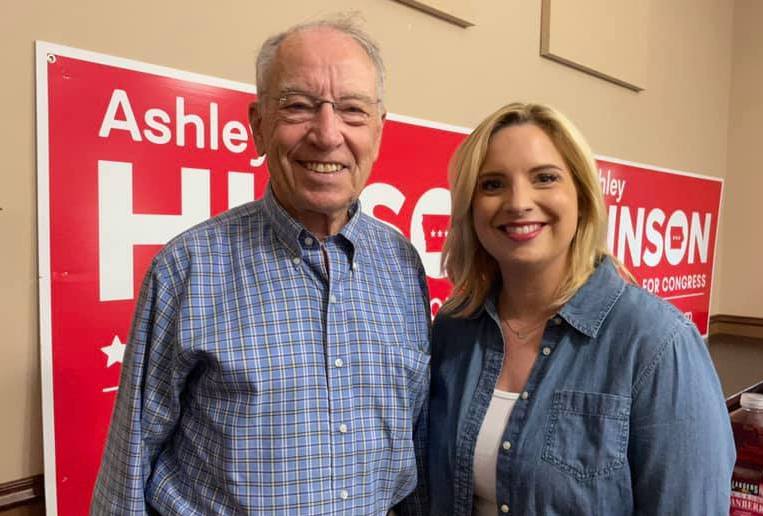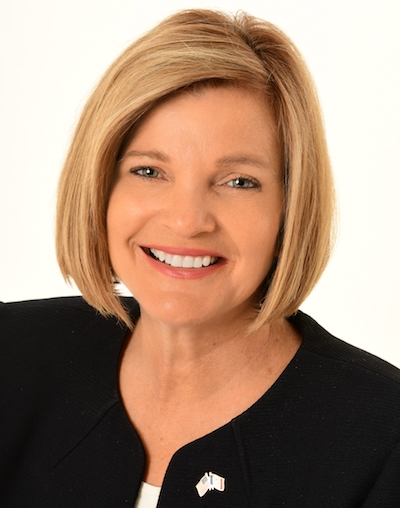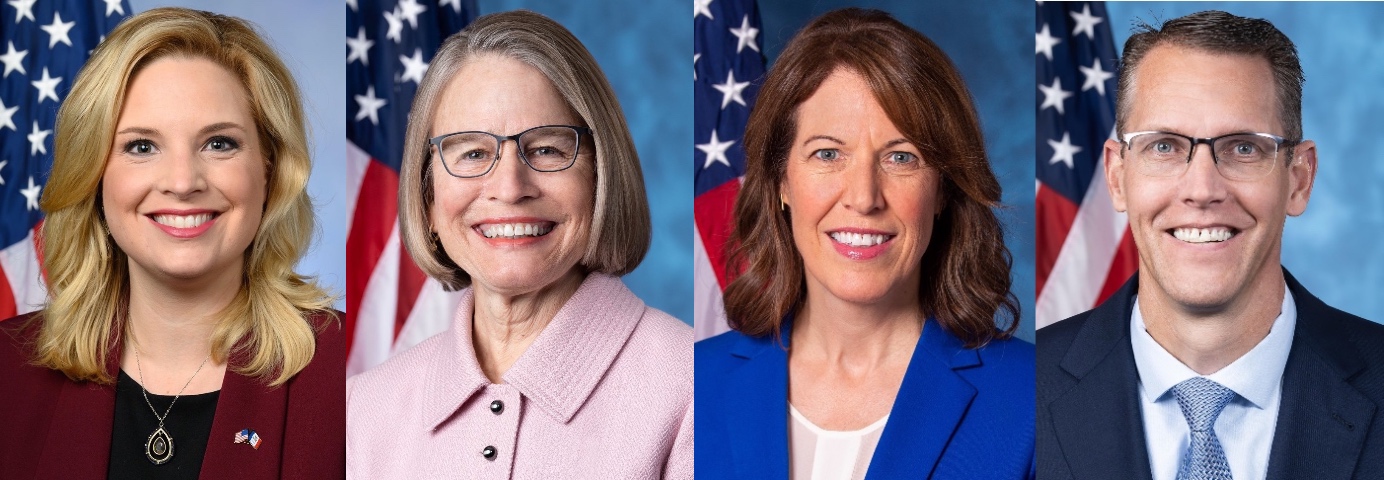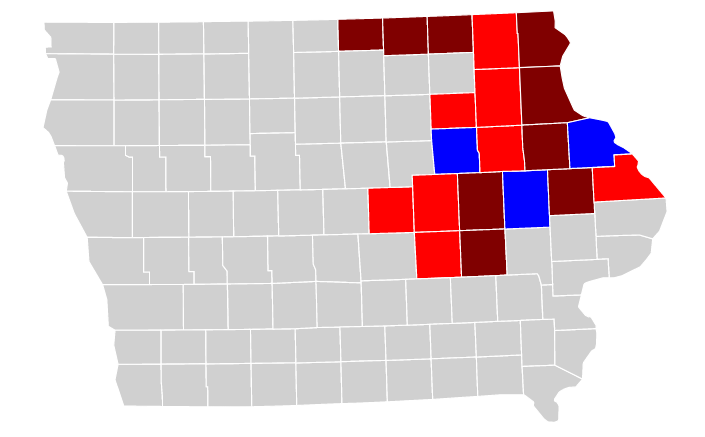Photo of Christina Bohannan at the Polk County Steak Fry in September 2021 is by Greg Hauenstein and published with permission.
Christina Bohannan is hoping to join Neal Smith, Tom Harkin, and Berkley Bedell in the club of Iowa Democrats who were elected to Congress on their second attempt.
Challenging an incumbent is usually an uphill battle, and recent voting trends favor Republicans in southeast Iowa, where Bohannan is running against U.S. Representative Mariannette Miller-Meeks. The Cook Partisan Voting Index for Iowa’s first Congressional district is R+3, meaning that in the last two presidential elections, voters living in the 20 counties that now make up IA-01 voted about three points more Republican than did the national electorate. The Daily Kos Elections team calculated that Donald Trump received about 50.5 percent of the 2020 presidential vote in this area, to 47.6 percent for Joe Biden.
The Cook Political Report and Sabato’s Crystal Ball rate IA-01 as “likely Republican” for 2024—potentially competitive, but not among the top two or three dozen U.S. House battlegrounds across the country. Inside Elections recently moved this district to the more competitive “lean Republican” category.
That said, no one should write off this race. Miller-Meeks ran for Congress unsuccessfully three times and was considered the underdog against Democrat Rita Hart in 2020. Many factors contributed to the Republican’s six-vote win that year, and I’ve been thinking about what would need to happen for Bohannan to prevail in next year’s IA-01 rematch.
Continue Reading...




